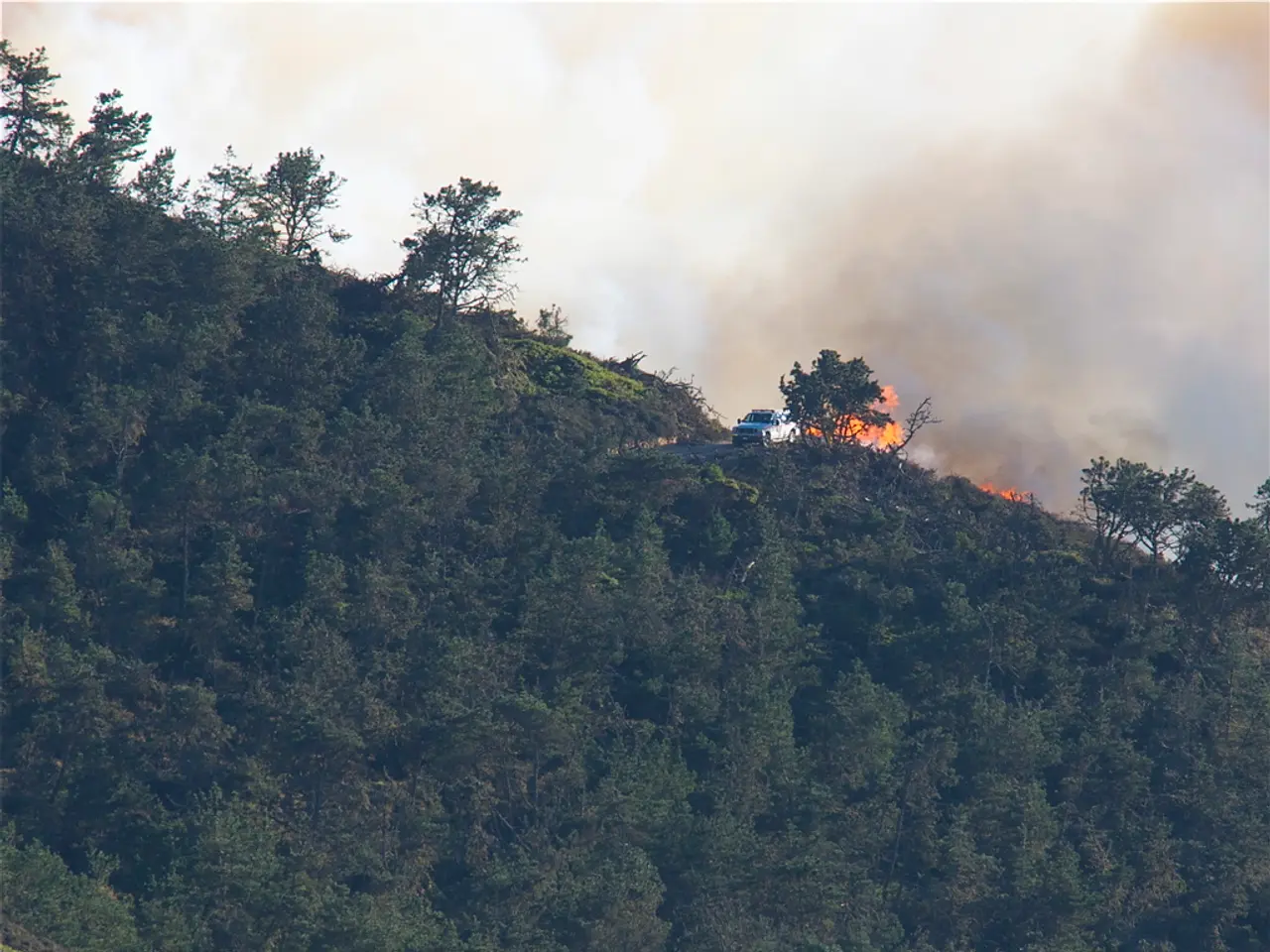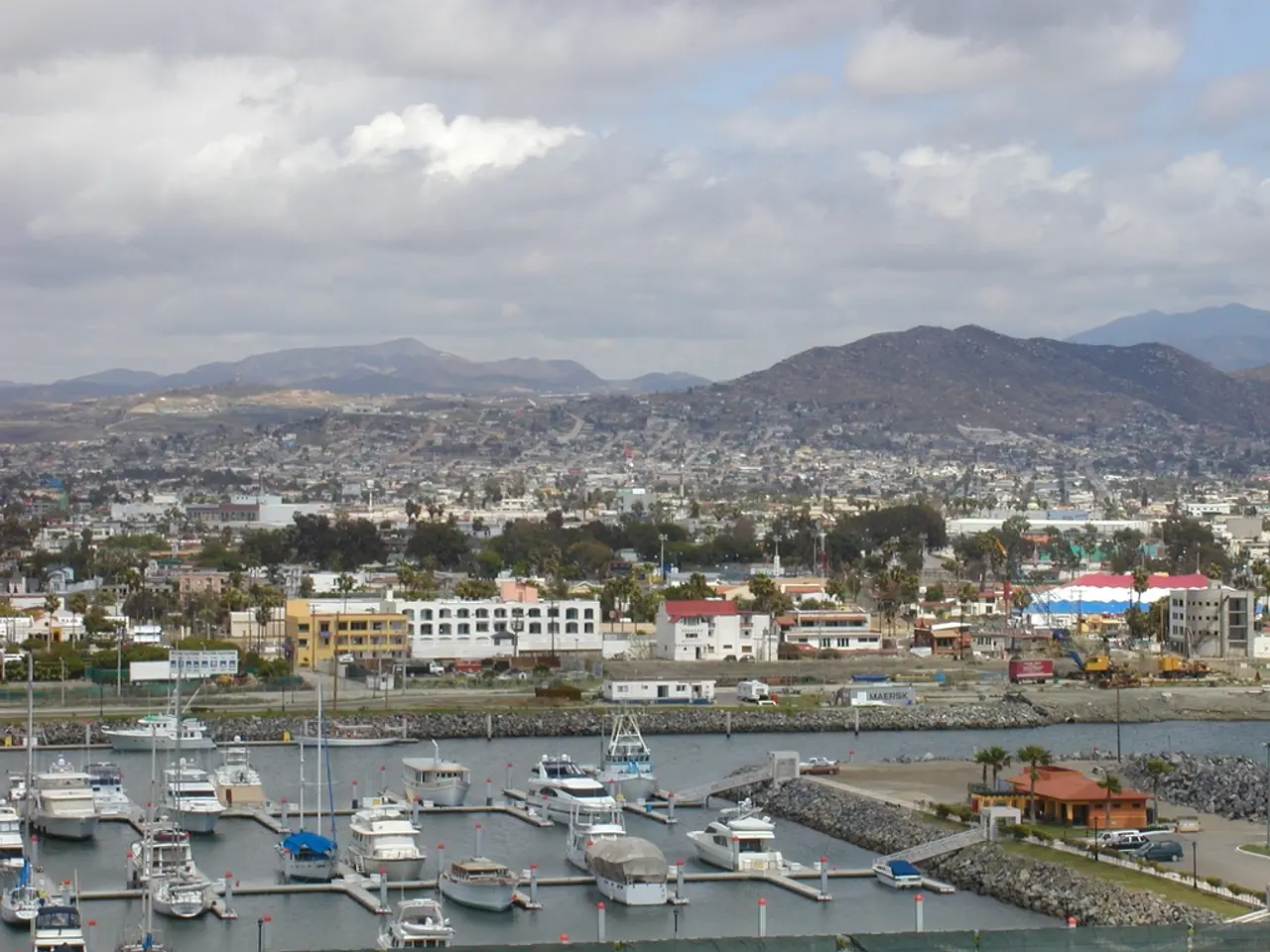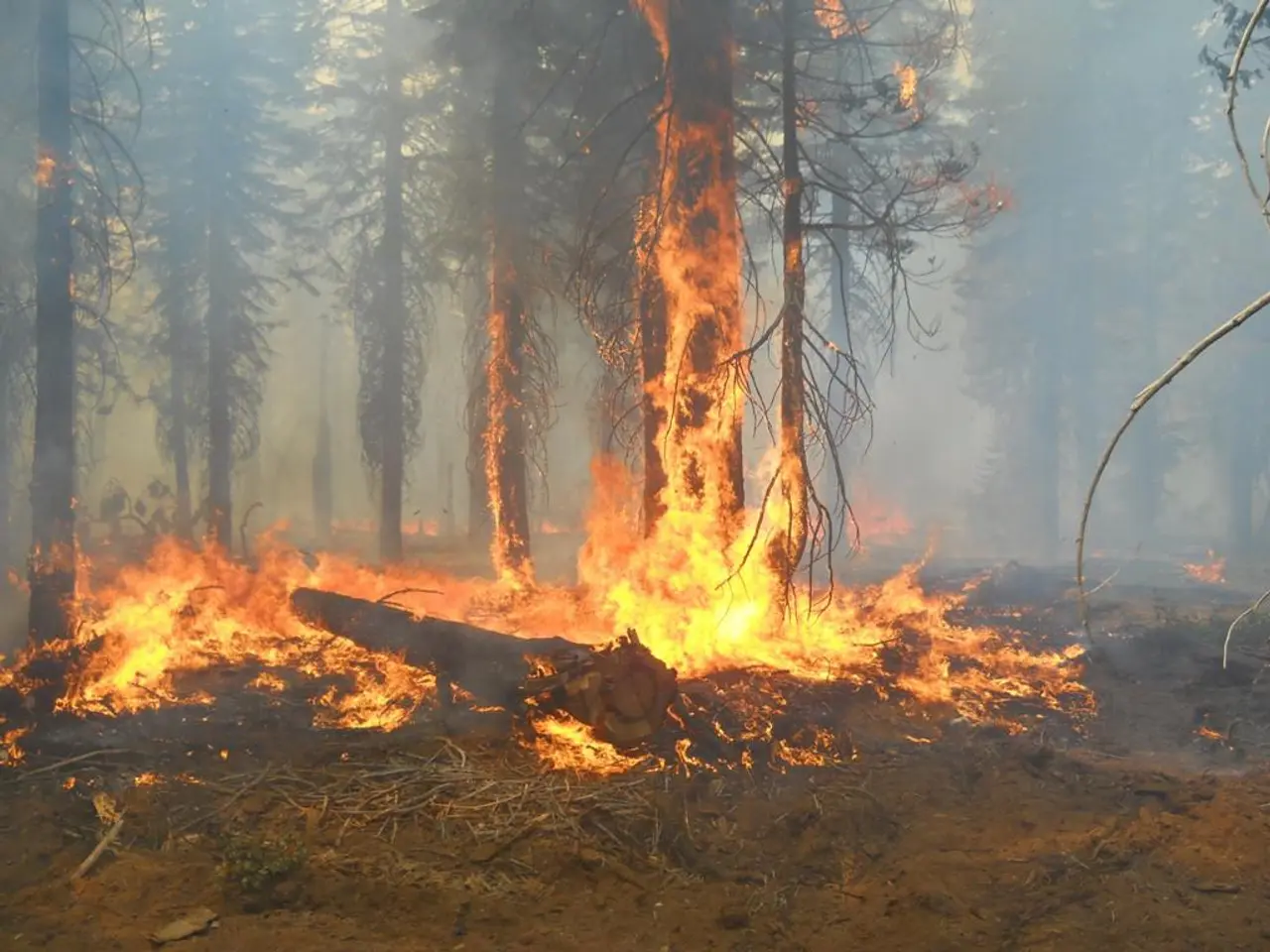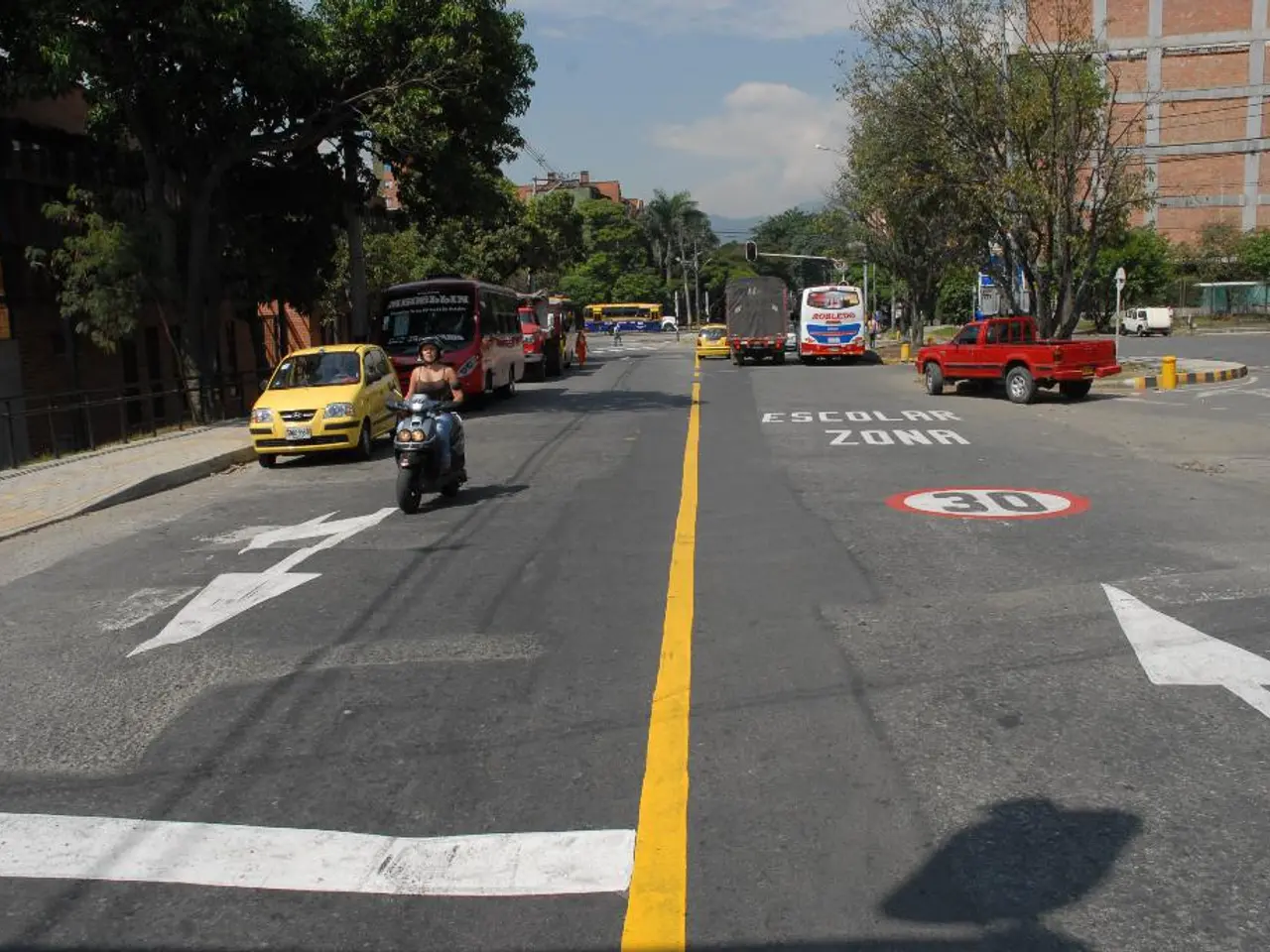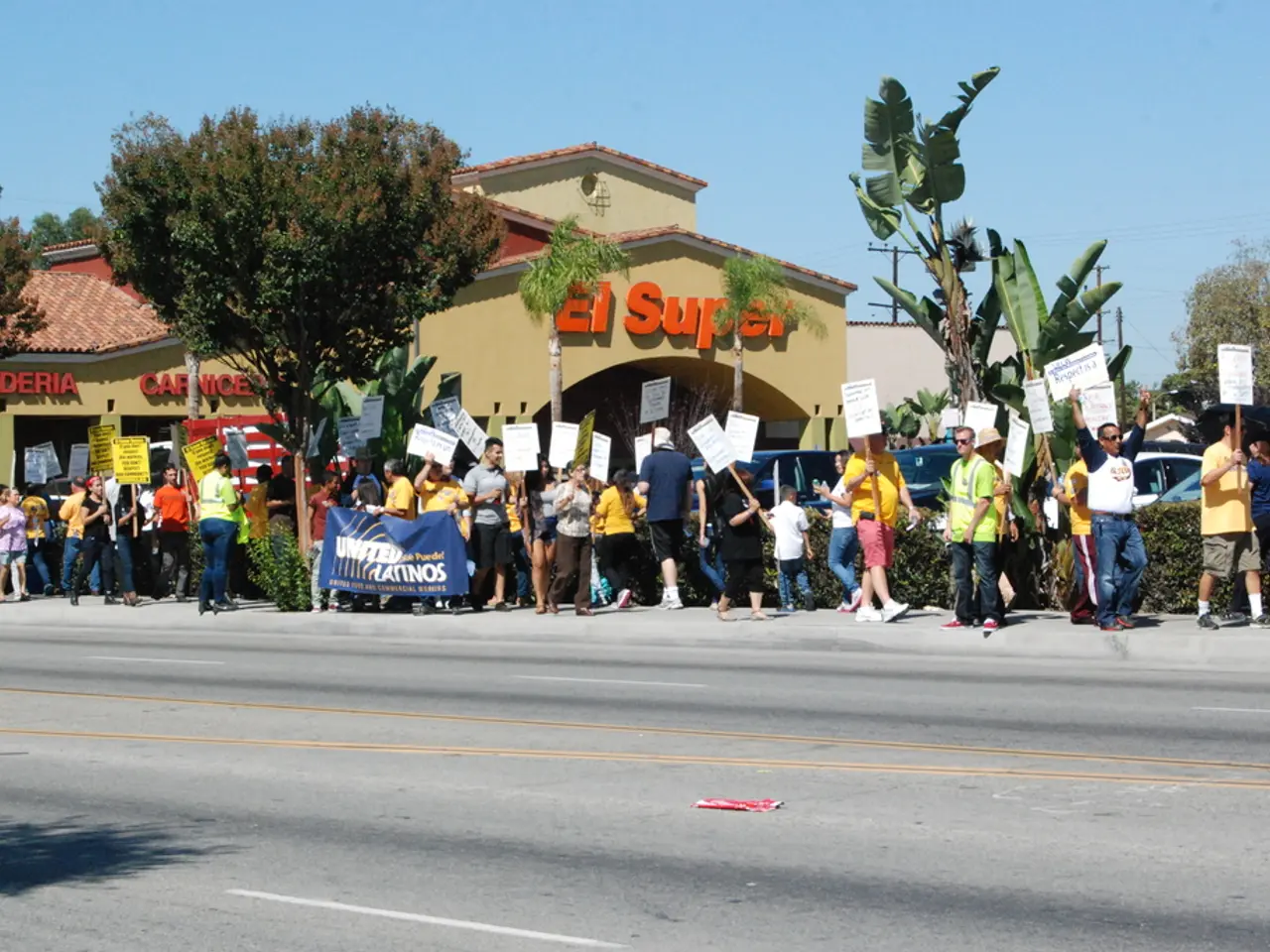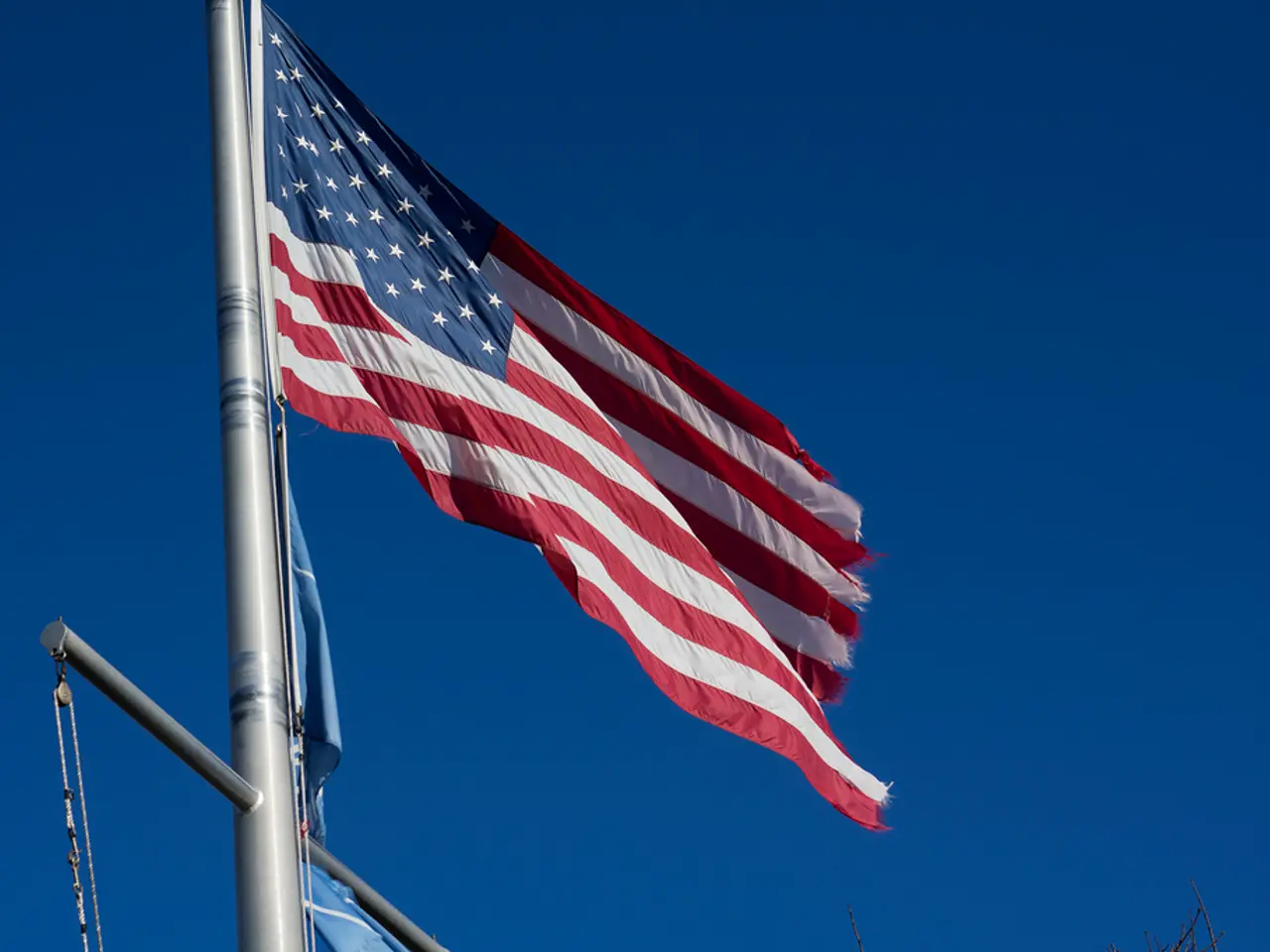Berlin's Water Usage Reaches an All-Time High - Berlin's water usage reaches all-time high
In the heart of Germany, Berlin has been grappling with soaring temperatures, with the mercury climbing close to 40 degrees Celsius. This extreme weather has led to expanded water usage restrictions in more than 40 districts, including areas near the city, as authorities strive to manage both public health and environmental risks such as forest fires in Brandenburg, close to Berlin[1].
The heatwave's impact on water consumption patterns in Berlin is evident. While precise data on the highest and lowest extraction volumes during this period is yet to be disclosed, the need for water use restrictions underscores the record-high water demand and the pressure on supply systems. The escalating heat has sparked calls for substantial investments (around five billion euros annually) to adapt infrastructure to frequent heatwaves, underscoring the critical challenges in water management during such extreme weather events[1].
Berlin, primarily a residential city, relies heavily on its water resources. The majority of the water consumed in the city is used by households, with industrial consumption being lower compared to other regions. Interestingly, the Berlin Waterworks, the primary supplier of water, sold over 214 million cubic meters of drinking water in 2024, marking an increase of around three million cubic meters compared to the previous year[1].
Stephan Natz, spokesperson for the Berlin Waterworks, noted that the record set on Tuesday could be broken soon due to the ongoing heatwave. However, he did not mention any prediction of breaking the record set in 2024 due to the heatwave's sustained intensity. Once temperatures drop and it rains, water consumption in Berlin is expected to decrease, but no specific timeline was given for this event[1].
During periods of reduced demand, such as the Easter holidays, water consumption typically drops significantly. Consumption is typically highest before the summer holidays and then declines sharply during the holidays. This pattern is expected to repeat this year, as many Berliners take their vacations[1].
For more precise data on water extraction volumes, further official reports from Berlin’s water authorities would be required. Current sources focus on heatwave conditions and policy responses rather than detailed water consumption metrics.
[1] Data sources: Berlin Waterworks, German Meteorological Service, and various news outlets.
The ongoing heatwave in Berlin has prompted discussions on the enhancement of community policy regarding water management, especially in light of frequent occurrences such as this. This necessitates the introduction of more vocational training programs for water management professionals, raising environmental-science and climate-change awareness, and implementing strategies that ensure sustainable water usage during extreme weather events like this one.
In response to the escalating demand for water due to the heatwave, Berlin's educational institutions could consider incorporating courses on water conservation within their vocational training programs, thereby preparing students for careers that adhere to sustainable water management practices in the face of climate change and its associated extreme weather events.

